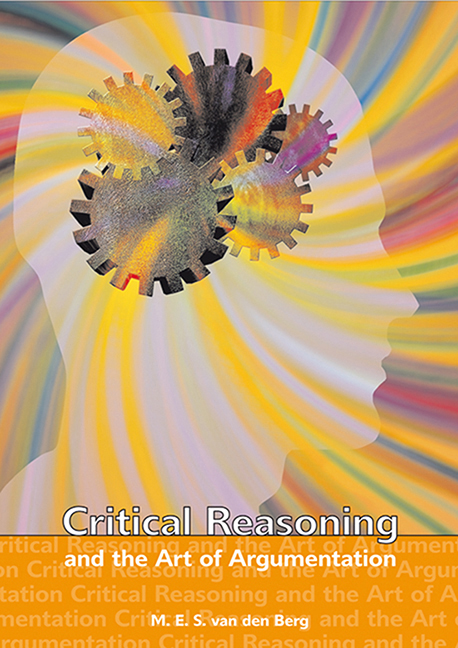Book contents
- Frontmatter
- Contents
- Preface
- CHAPTER 1 What is critical reasoning?
- CHAPTER 2 Obstacles to clear thinking: Preconceived ideas and fallacies
- CHAPTER 3 Working with arguments
- CHAPTER 4 How to analyse arguments
- CHAPTER 5 Definitions, counterexamples and counterarguments
- CHAPTER 6 Evaluating arguments
- CHAPTER 7 Applying your knowledge and skills to the evaluation of arguments
- CHAPTER 8 Constructing arguments and writing argumentative essays
- References
- Glossary
- Index
CHAPTER 5 - Definitions, counterexamples and counterarguments
Published online by Cambridge University Press: 20 February 2020
- Frontmatter
- Contents
- Preface
- CHAPTER 1 What is critical reasoning?
- CHAPTER 2 Obstacles to clear thinking: Preconceived ideas and fallacies
- CHAPTER 3 Working with arguments
- CHAPTER 4 How to analyse arguments
- CHAPTER 5 Definitions, counterexamples and counterarguments
- CHAPTER 6 Evaluating arguments
- CHAPTER 7 Applying your knowledge and skills to the evaluation of arguments
- CHAPTER 8 Constructing arguments and writing argumentative essays
- References
- Glossary
- Index
Summary
It was in vain that Watt said, Pot, pot. Well, perhaps not quite in vain, but very nearly. For it was not a pot, the more he looked, the more he reflected, the more he felt sure of that, that it was not a pot at all. It resembled a pot, it was almost a pot, but it was not a pot of which one could say, Pot, pot, and be comforted. It was in vain that it answered, with unexceptionable adequacy, all the purposes, and performed all the offices, of a pot, it was not a pot.
Samuel BeckettIn this chapter we will discuss the role and types of definitions used in arguments and the role of counterexamples and counterarguments when evaluating arguments. In chapter 2 (‘Obstacles to clear thinking: preconceived ideas and fallacies’) we saw that the use of vague and ambiguous terms can obscure our ideas and lead to faulty reasoning. As critical thinkers, we should use words carefully and make sure that the concepts we use in argumentation are properly defined.
The role of definitions
Defining the key terms and concepts we use in argumentation helps to reduce vagueness, avoid ambiguities and clarify information. It also prevents misunderstandings.
Michael Andolina (2002:42-43) has the following to say about the importance of definitions in order to clarify information and alleviate potential conflict:
Defining your terms, especially in the beginning of a discussion, establishes the intended meaning and sets boundaries for what you are attempting to communicate. … [Words and concepts] are the main vehicles through which we communicate our thoughts, feelings, and experiences. However, a mere string of words is inadequate for communicating these experiences in an intelligible way. We need to organize experience under general ideas so that the listener or reader can fully understand what we are trying to convey. Concepts perform that function. Concepts are general ideas that bring order and intelligibility to our experience.
The point Andolina makes is that definitions play an important role in argumentation and communication. The role of definitions is not only to clarify the meaning of words, but also to explain and develop the key concepts we use to communicate our thoughts, feelings and experiences.
- Type
- Chapter
- Information
- Critical Reasoning and the Art of Argumentation , pp. 72 - 79Publisher: University of South AfricaPrint publication year: 2010



